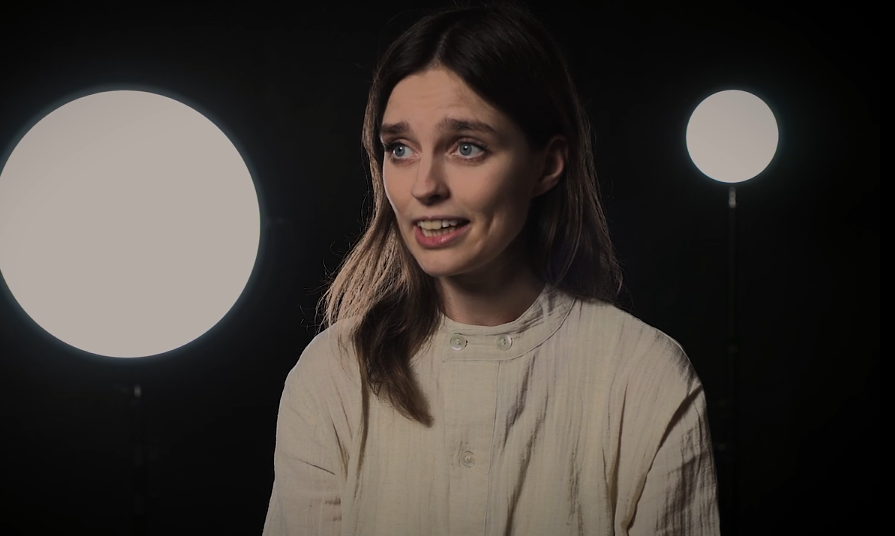Léonie Sonning Talent Prize 2018
I preferred football but then I heard Prokofiev
As a schoolgirl, Bára was more interested in playing football than playing her instrument, the violin. She grew up in Norway with her Icelandic parents from the age of five and until 13 when they moved back to Iceland. He mother is a choirmaster and her father is a cardiologist. During a school stay in New Zealand in 2007, Bára encountered the contrabass. The school orchestra was in need of a contrabassist and Bára jumped at the chance.
It’s a very special feeling when you find the right instrument. It was true love, says Bára.
However, despite her love for the instrument, Bára was a very ambitious football player who was playing in the top league until age 20 – and a less ambitious musician. Until a musical turnaround happened for Bára. She was 17 and was playing in the Symphony Youth Orchestra in Reykjavik where she appeared for the rehearsal without having practised. The programme included Prokofiev, Romeo and Juliet. But then something happened: It started with a deafening roar from bass and percussion, which inspired Bára. The string players played a low B minor, which was inaudible due to the noise from the other instruments. But, all of a sudden, the B minor was totally clear and Bára then knew that she had to do something with music.
She continued to play the contrabass and later started composing. In Iceland, she took private lessons in contrabass and played in an orchestra. She was admitted to the Royal Danish Academy of Music in Copenhagen (composer line), where she now attends the soloist class.
I’m happy about my background in the music environment in Iceland. It can be somewhat wilder than musical environments I have experienced elsewhere. It’s an environment where you can experiment a lot and don’t have to fear making mistakes, says Bára.
Having grown up in an environment as experimenting as this, it’s obvious to be experimenting yourself, says Bára, who lives in Copenhagen today due to her studies and because it is a practical base when travelling around the world with her projects.
Bára can write music anywhere, even if surrounded by noise. She is inspired by having time and space to reflect:
People insist on a romantic picture of the process of composing and perceive the composer as a medium. I don’t. The most important thing for me is to explore each and every possibility and detail of my work. It is often a very visual process where I have thought the piece through before writing it down. I spend a lot of time preparing and place it in a linear form later on. To begin with, I write it by hand and later write it into a sheet programme. Until then, I see the music as a whole. I do not have a linear relation with the music. But, of course, when written down, it has to be linear. It’s somewhat frightening that music has to be that linear; you are caught in a form, says Bára.
The career is distributed evenly between composition and projects with contrabass, both as a soloist with her own works and in various ensembles.
Bára Gísladóttir, contrabassist and composer, in brief
Bára Gísladóttir is an Icelandic composer and contrabassist based in Copenhagen where she studies composition in the soloist class of the Royal Danish Academy of Music. While living in Iceland, she studied the contrabass and was first bass in the Iceland Symphony Youth Orchestra.
Bára is an active performer and plays her own music regularly. She is also a contrabassist in Elja Ensemble, Skark Ensemble and the Balkans band, Orphic Oxtra.
Bára is a member of the Swedish-Icelandic composition collective, Errata. The purpose of the collective is to create a platform for young composers to present themselves and their art and to promote new and innovative composition techniques and distribution forms.
How Bára will use the scholarship from the Léonie Sonning Music Foundation
Bára will use the scholarship to expand her composition knowledge and skills. She will take private lessons with the Italian composer and professor in composition, Gabriele Manca, in Milan. She will also go on study trips to cooperate with Loadbang and TAK Ensemble in New York, Riot Ensemble in Reykjavík and Amsterdam and Nordic Affect in Reykjavík and Skálholt.





